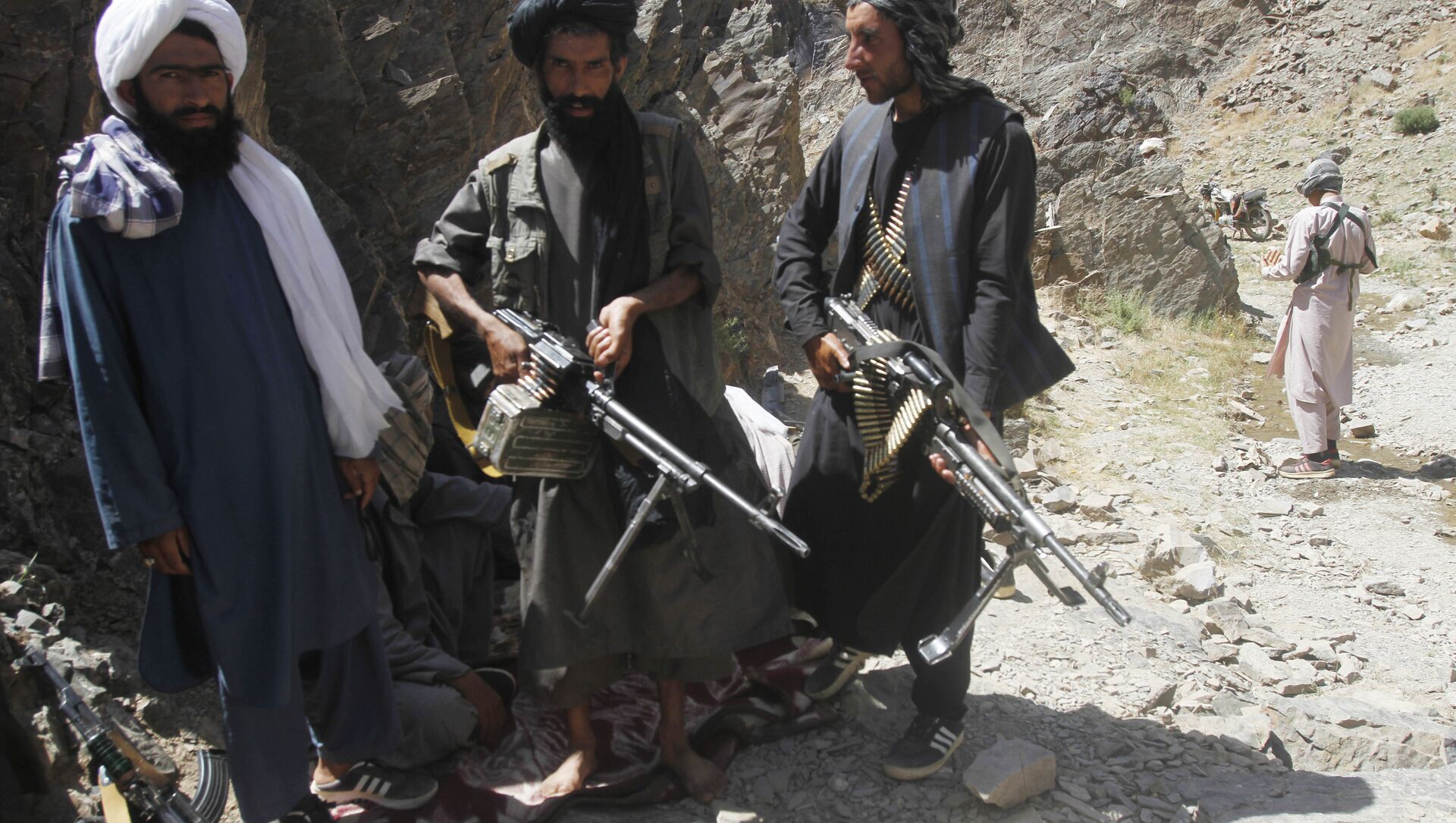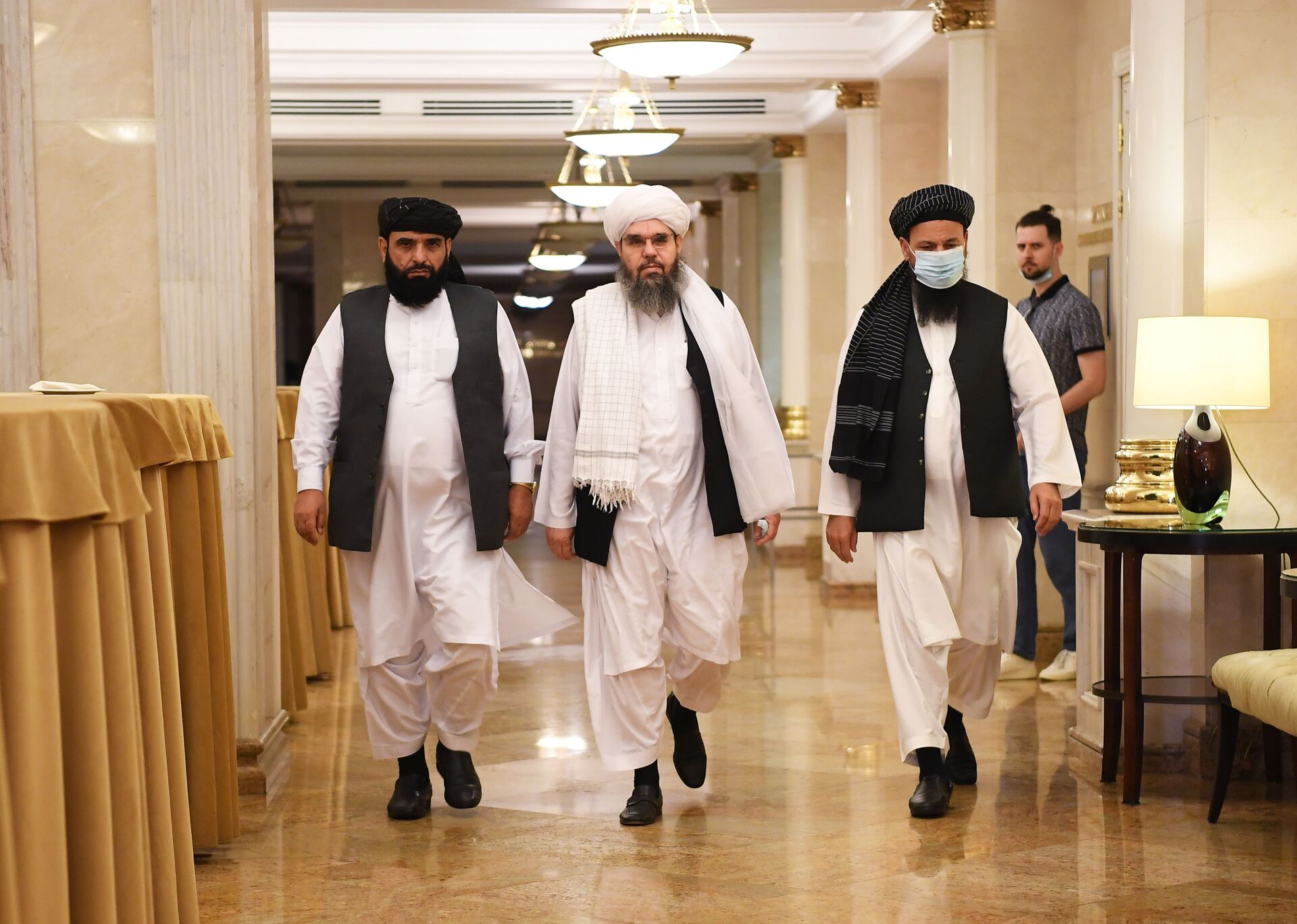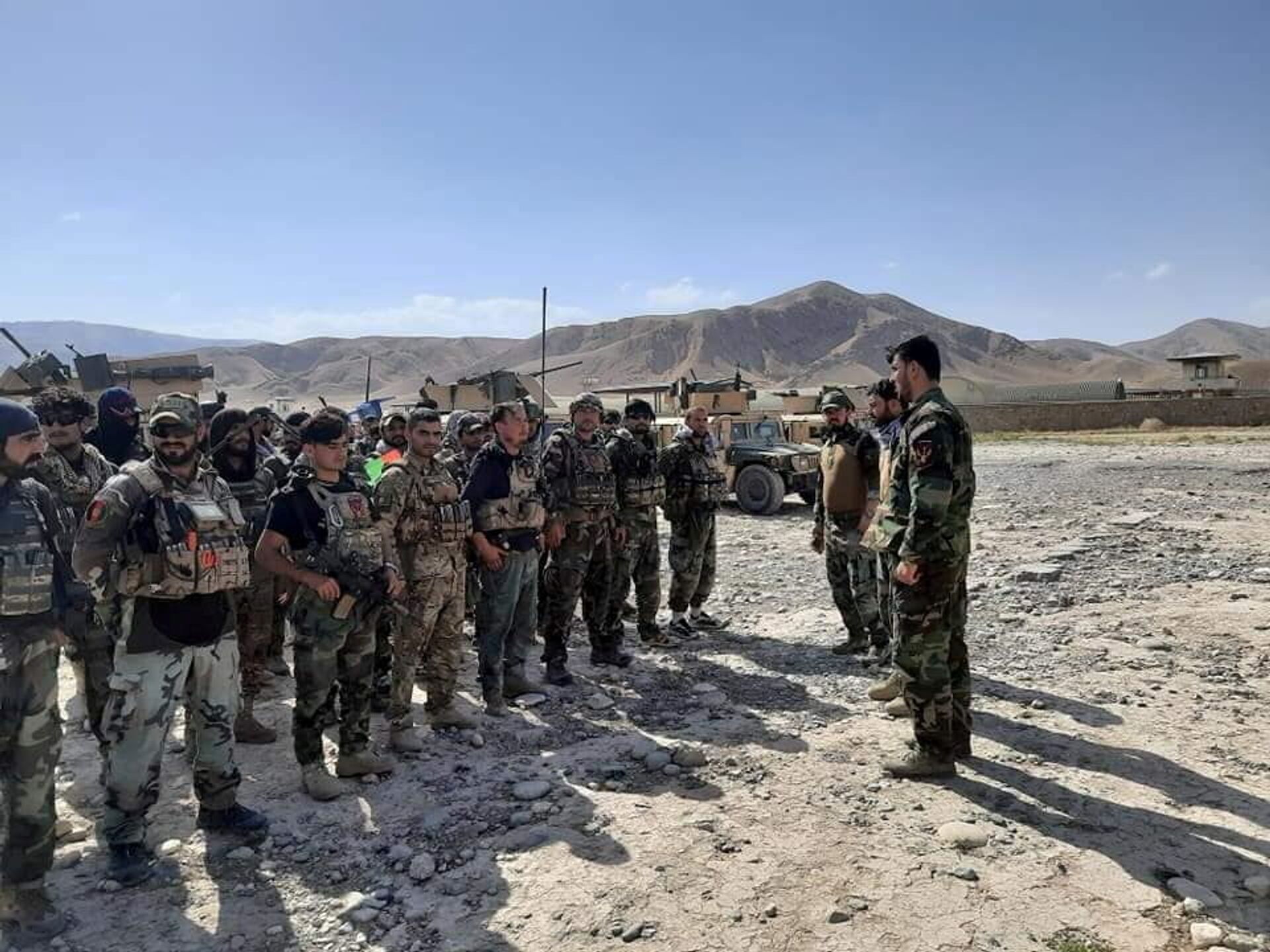Russian Envoy for Afghanistan Warns of Consequences if Taliban Undermine Regional Security
07:24 GMT 14.07.2021 (Updated: 16:36 GMT 08.12.2022)

© AP Photo / Allauddin Khan
Subscribe
MOSCOW (Sputnik) - The Russian president's special envoy for Afghanistan, Zamir Kabulov, has told Sputnik that any attempt by the Taliban movement* to undermine security in Central Asia would lead to grave consequences.
"We are closely monitoring the situation [in Afghanistan]. But when the Taliban see that any attempt to undermine the security of our allies in Central Asia will be fraught with great losses for them, they will start behaving", Kabulov said.
The diplomat noted that serious negotiations between the government and the Taliban should not be expected before the fall.
"It seems to me that in reality, the parties will be ready for substantial, productive negotiations in the fall. Both sides have been preparing for war for too long and until, as they say, they don't blow off the steam, it is difficult to count on something serious", Kabulov said when asked if peace talks were expected any time soon.

Taliban envoys in Moscow before the start of a press conference. 9 July, 2021.
© Sputnik / Екатерина Чеснокова
/ According to him, the only way for the warring Afghan parties to break the political deadlock and end the violence was to form a transitional government.
"Now, before it is too late, the sides should come to their senses and launch substantial negotiations, which will inevitably end with the establishment of a coalition provisional authority. A coalition with the participation of the Taliban movement [banned in Russia]. What percentage and in what proportion the Taliban will be represented is the business of the Afghans. Let them decide for themselves", Kabulov said.
The envoy went on to say that the Afghan government and the Taliban must come to the table and agree on a transitional body that would not be elected but rather be the subject of an agreement between the two sides.
Such an authority, according to Kabulov, should exist for two or three years.
"It is important that there is no power vacuum, no chaos in the country, there is a need for a joint authority that will end hostilities and begin solving problems before proceeding with the final determination of the future of Afghanistan and the future form of government. They must bring order back to the country and solve the issues of integrating the Taliban into society", the diplomat said.

Afghan commandos arrive to reinforce security forces in Faizabad, capital of Badakhshan province, after the Taliban captured neighbourhood districts of Badakhshan recently, July 4, 2021.
© REUTERS / Afghanistan Ministry of Defence
Kabulov described the intra-Afghan talks in Doha as an "imitation of negotiations", pointing to the lack of an agenda, which is the cornerstone of any substantive discussions. He also noted that the procedure for clearing the Taliban movement of UN Security Council sanctions can only be launched after meaningful intra-Afghan negotiations start.
"We agreed and told the Taliban expressly, 'As soon as you, the Taliban movement, sit down at the negotiating table with the other side.' ... When this happens and they sit down and start working on this agenda, this will be a sign for us that the time has come to launch the delisting procedure, that is, the removal of the Taliban defendants from the UN Security Council sanctions list", Kabulov said, adding that "the procedure is not easy but is absolutely simple".
Afghanistan is witnessing an escalation of violence since the United States and its NATO allies began the withdrawal of troops from Afghanistan in recent weeks, in accordance with a deal between Washington and the radical movement, signed in February 2020.
The militants have been making significant territorial gains across the country, with at least three crossing points to neighbouring Uzbekistan, Tajikistan, and Iran falling to the movement.
*The Taliban is a terrorist organisation banned in Russia

